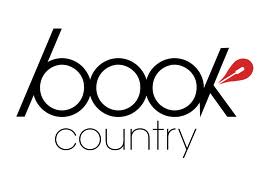There is an interesting article on paidcontent.org about Penguin’s entry into self-publishing services with Book Country, launched fully last week.
Many popular self-published authors are coming down hard on the self-publishing services that Penguin added to community writing site Book Country earlier this week, calling the initiative overpriced, royalty-grabbing and “truly awful.”
The primary criticisms are that Book Country’s services, which range from $99 to $549, are much too expensive—“vanity press, pure and simple,” writes one commenter at The Passive Voice—and that Penguin takes a cut of 30 percent cut of royalties authors earn from third-party retailers like Amazon (NSDQ: AMZN). In other words, an author who directly uploads his or her work to Amazon receives a 70 percent royalty. An author who uses Book Country to upload his or her work to Amazon receives 70 percent of that 70 percent. An author who publishes a $2.99 e-book directly on Amazon will receive $2.05 for each sale. An author who publishes an e-book to Amazon through Book Country will receive just $1.47 for each sale.
I’ve a mixed opinion on this. I don’t remember seeing the same vociferous opinion expressed from authors when AuthorSolutions Inc. partnered with Thomas Nelson, Hay Publishing and Harlequin. Much of the criticism came from author bodies and predominately voices within the established publishing industry. It’s interesting that this time around high profile self-published authors like Konrath and Gaughran are heading the steam to highlight the second rate deal authors are getting from Book Country.
Gaughran said he “can’t imagine” why anyone who has already self-published would use Book Country, but “I am afraid that less experienced writers will go for it because it is backed by Penguin. That dream of a Big 6 publishing deal is widespread, and hard to shake.”
Okay, so David thinks Book Country is a rip-off, buy why now? Self–Publishing and rip-off existed long before 2008. I don’t disagree with anything Konrath or Gaughran say in their reaction to Book Country,or any self-publishing service that takes a profit from what those companies provide. It’s a law of business. Sure, if I employ a middleman service, I have to accept that my profit is not going to be the same if I went to source (Amazon and B&N in this case). I’m just not sure Konrath and Gaughran are taking on board the reality that most authors want to write and not engage in the process of book production and distribution. We can shout from the rooftops that it is easier than it looks, and DIY and true self-publishing is the way to go, but most of the authors I deal with, day to day, want a middleman. I can’t help that no more than Konrath or Gaughran can.
But there is something deeper here going on that we should not ignore. For so long the self-publishing community has fought for acceptance and recognition within the publishing industry. Just when we have eroded some of the stigmas, and proven that some self-published authors and their books can compete at the forefront of publishing, it would be a shame to start to show a divided front in self-publishing. I understand Joe Konrath’s ire because he came from a foundation within traditional publishing, did an about turn, and embraced the changes and benefits for the author as an individual business concern by self-publishing. So, I can understand him having a pop at one of the big six when they ‘cream’ it off the little guy. I’m just offput by Joe’s ‘Harry Enfield’s Loads a Money’ approach to highlighting his success, and that that should be the underlying perception of self-publishing to new authors entering the precarious field of self-publishing. Because the reality of self-publishing is far from the world of Konrath.
One of the greatest strengths of self-publishing over the past few years has been its adaptability, using online communities to celebrate, disseminate and promote books, as well as passing experience on, author to author. Crucially, it’s no substitute for connecting with readers, unless all your readers are authors themselves! Readers congregate on forums like Amazon and Goodreads – hybrids of publishing/sales platforms. The biggest challenge for the self-publishing community is to stretch beyond selling books to its own community, and its important we are as critical of ourselves as we are so openly to criticize the broader publishing industry.
Divided we fall – united we conquer.
Related articles
- Self-Published Authors Sharply Criticize Penguin’s Book Country (paidcontent.org)
- Self-Publishing – A Cautionary Tale (debmaher.com)
- Penguin Enters the Self-Publishing Service Arena with Book Country (mickrooney.blogspot.com)
- Penguin Launches Rip-Off Self-Publishing “Service” Targeting Inexperienced Writers (davidgaughran.wordpress.com)
- Penguin Adds Self-Publishing To Writing Community Site Book Country (paidcontent.org)
- Book Country Fail (chazzwrites.wordpress.com)

